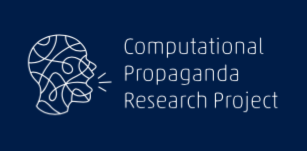Press: Nobel-winning journalist Ressa: ‘Tech tearing apart shared reality’
post,
19 October 2021
With social media strategy now an essential component of electioneering worldwide, election campaigns have developed increasingly sophisticated methods of maximizing the impact that the internet can have on the electorate. One such method is the artificial manipulation of social media output through botnets – automated software used to flood these channels with propaganda. The 2016 US presidential election offers a clear example of this: over one-third of pro-Trump tweets came from self-regulating and unmanned accounts.
Registration is now open for a panel discussing the findings of a new report published by our team – Troops, Trolls and Trouble-Makers: A Global Inventory of Organized Social Media Manipulation – which examines how governments use social media to influence public opinion. The report monitors and assesses over 25 countries that use ‘misinformation’ campaigns, trolls, cyber troops and botnets to censor dissent and sway political outcomes. What different strategies do these governments use to manipulate public opinion? And, much like debates currently surrounding ‘fake news,’ does computational propaganda have a substantial effect on electoral outcomes or is the extent of its influence overblown?
Who: Samantha Bradshaw, Project Researcher; Phil Howard, Project PI; Andrew Chadwick, Professor, Royal Holloway, University of London
Where: The Royal Institute of International Affairs (Chatham House), 10 St James’s Square, London SW1Y 4LE
When: 17 Jul 2017 – 13:00 to 14:00
Registration Link: https://www.chathamhouse.org/event/cyber-populism-social-media-damaging-democracy#
post,
19 October 2021
post,
17 August 2021
post,
25 July 2021
post,
19 January 2021
